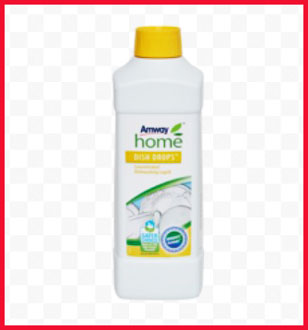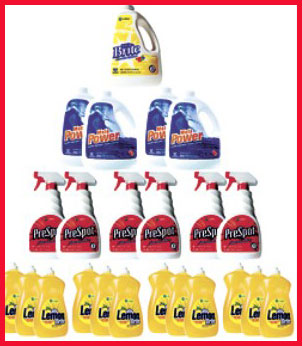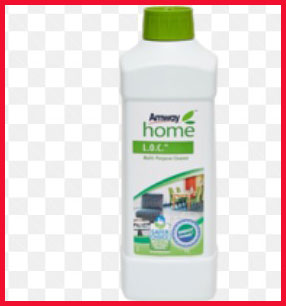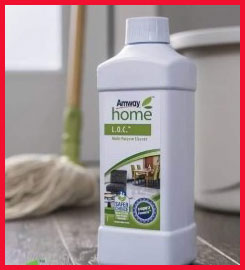I’ve always been curious about wellness companies that promise not just better health but also a shot at financial freedom. Melaleuca and Amway, two titans in the multi-level marketing (MLM) world, caught my attention with their bold claims and sprawling product lines. My goal here is to unpack their offerings, business models, and reputations from an analytical perspective, sharing what I’ve learned about their pros, cons, and key features. By comparing these companies side by side, I hope to help you decide which, if either, aligns with your needs and values. Let’s get started.
A Brief Comparison Table
| Feature | Melaleuca | Amway |
| Founded | 1985 | 1959 |
| Headquarters | Idaho Falls, Idaho, USA | Ada, Michigan, USA |
| Product Focus | Health, personal care, home care | Health, beauty, personal care, home care |
| Business Model | Consumer Direct Marketing (MLM-like) | Multi-Level Marketing (MLM) |
| Startup Cost | $29 (refundable) | ~$200 (non-refundable) |
| Monthly Purchase Requirement | ~$45 (Preferred Customer) | ~$250 (to earn commissions) |
| Product Pricing | Competitive with grocery stores | Often higher than retail alternatives |
| Unique Products | ~95% proprietary with patents | ~5% unique; many rebranded |
| Customer Satisfaction | 4.3/5 (Customer Service), 4.5/5 (Quality) | 4.5/5 (Customer Service), 4.7/5 (Quality) |
| Global Brand Ranking | #762 (Comparably) | #828 (Comparably) |
| CEO Approval Rating | 83/100 (Frank VanderSloot) | 77/100 (Milind Pant) |
| Environmental Focus | Strong (toxin-free, eco-friendly) | Moderate (some eco-friendly products) |
My First Encounter With Melaleuca And Amway
Read More: My Thought on Rowenta DW7180 Vs. DW9280

Years ago, a friend invited me to a Melaleuca presentation. The room buzzed with enthusiasm, and the presenter raved about toxin-free cleaning products and supplements that could change lives. I was intrigued but skeptical—MLM pitches often sound too good to be true. Later, I stumbled across Amway through a family member who swore by their Nutrilite vitamins. Both companies seemed to offer similar promises: high-quality wellness products and a chance to earn income. But as I dug deeper, I realized their differences were stark, and each had strengths and pitfalls worth exploring.
Understanding Melaleuca: The Wellness Company
Melaleuca, founded in 1985 by Frank VanderSloot, markets itself as “The Wellness Company.” Its name comes from the Melaleuca alternifolia tree, known for tea tree oil’s antiseptic properties. Initially, all products contained this oil, but today, less than 5% do, as the company has expanded into a vast catalog of over 450 items, including supplements, personal care, and household cleaners.
Key Features Of Melaleuca Products
Melaleuca’s product line is broad, covering everything from shampoo to protein powders. Their flagship offerings include:
- EcoSense Cleaners: Phosphate-free detergents and toxin-free sprays, like the MelaPower laundry detergent, which I found effective for everyday stains.
- Vitality Supplements: Multivitamins and health bundles, such as the Vitality Pack, which claims to support overall wellness with natural ingredients.
- Renew Skin Care: Lotions and body washes infused with natural oils, like their tea tree oil body wash, which left my skin feeling refreshed without irritation.
- Affinia Body Care: A newer line of shampoos and deodorants with nature-inspired scents, which I appreciated for their subtle fragrances.
Melaleuca emphasizes environmentally friendly, patented formulas. I tested their EcoSense dish soap, and it cut through grease as well as any store brand, with the added perk of being biodegradable. Their prices are competitive—often matching or beating grocery store brands—which surprised me given the MLM stigma of overpriced goods.
Pros Of Melaleuca

- Affordable Startup: The $29 entry fee is refundable within 120 days, making it low-risk for new members. I appreciated this flexibility when I considered joining.
- No Inventory Hassle: Unlike traditional MLMs, Melaleuca doesn’t require you to stockpile products. You order what you need, which saved me from cluttering my garage.
- Competitive Pricing: Products like their $6 laundry detergent rival store brands in cost and quality, based on my comparisons at local supermarkets.
- Eco-Friendly Focus: Their toxin-free, sustainable products align with my values. I felt good using their cleaners, knowing they were safer for my home.
- Strong Leadership: Frank VanderSloot’s 83/100 CEO rating reflects employee trust, and his awards, like the Horatio Alger Distinguished Award, add credibility.
Cons Of Melaleuca
- MLM-Like Structure: Despite their “Consumer Direct Marketing” label, the model feels like an MLM, which turned me off due to recruitment pressures.
- Limited Transparency: Product descriptions sometimes lack detailed ingredient lists or third-party lab results, which made me question some claims.
- Membership Confusion: The mandatory $45 monthly purchase for Preferred Customers felt restrictive, especially when I didn’t need that much product.
- Mixed Customer Feedback: While many praise the quality (4.5/5 on Comparably), some users on forums like DISboards complained about high costs and pushy sales tactics.
- Animal Testing Concerns: Some sources, like My Internet Quest, claim Melaleuca tests on animals, which could be a dealbreaker for ethical consumers like me.
Exploring Amway: The Mlm Pioneer
Amway, launched in 1959, is the granddaddy of MLMs. Based in Ada, Michigan, it’s a global giant with a massive product range, from Nutrilite supplements to Artistry skincare. My family member’s enthusiasm for Amway’s vitamins piqued my interest, but I soon learned its business model and products come with a mixed bag of benefits and challenges.
Key Features Of Amway Products
Amway’s catalog is as expansive as Melaleuca’s, with a focus on health, beauty, and home care. Standout products include:
- Nutrilite Supplements: Their Double X multivitamin is packed with plant-based nutrients. I tried it for a month and felt a slight energy boost, though nothing dramatic.
- Artistry Skincare: High-end creams and serums, like the Youth Xtend line, which I found luxurious but pricey compared to drugstore alternatives.
- eSpring Water Purifiers: A unique offering that purifies tap water. I didn’t test it, but reviews praise its effectiveness for clean drinking water.
- Amway Home Cleaners: Their SA8 laundry detergent worked well in my tests, though it was pricier than Melaleuca’s equivalent.
Amway’s products often carry a premium price tag, which I noticed when comparing their $30 vitamin bottle to similar products at $15 in stores. Only about 5% of their products are unique, with many rebranded from third-party manufacturers, which made me question their value proposition.
Pros Of Amway
- Established Reputation: With over 60 years in business, Amway’s longevity speaks to its stability. I felt reassured by its global presence.
- High Customer Satisfaction: Comparably rates Amway’s customer service at 4.5/5 and product quality at 4.7/5, reflecting strong user trust.
- Diverse Product Line: From water purifiers to makeup, Amway’s variety caters to nearly every need, which I found convenient for one-stop shopping.
- Active Support: Customers on Max Health Living praised Amway’s responsive support team, which I experienced firsthand when inquiring about a product.
- Transparency: Amway provides detailed ingredient lists and NSF certifications for supplements, which gave me confidence in their quality.
Cons Of Amway

- High Startup Costs: The ~$200 non-refundable entry fee felt steep compared to Melaleuca’s $29, deterring me from joining.
- Expensive Products: Many items, like a $40 bottle of vitamins, cost more than retail alternatives, which strained my budget.
- Heavy Recruitment Focus: The pressure to recruit others, as noted on Quora, felt overwhelming and misaligned with my goal of just using products.
- Monthly Quotas: The $250 monthly purchase requirement to earn commissions was a burden, especially when I didn’t need that much product.
- Mixed Environmental Record: While some products are eco-friendly, Amway doesn’t emphasize sustainability as strongly as Melaleuca, which disappointed me.
A Side-By-Side Analysis: Business Models And Practices
Both companies operate in the direct-selling space, but their approaches differ significantly. Melaleuca brands itself as Consumer Direct Marketing, claiming to prioritize customers over distributors. You sign up as a Preferred Customer, spending about $45 monthly on products you use, with no need to stock inventory. I liked this low-pressure model, as it let me focus on personal use without pushing sales.
Amway, on the other hand, is a traditional MLM. You become an Independent Business Owner (IBO), buying products wholesale to sell retail or recruit others. The $250 monthly quota to earn commissions felt like a constant hustle, and the high startup cost made me hesitate. My experience with Amway’s system echoed complaints on forums like The Yeshiva World, where users described the model as exhausting and profit-focused.
Product Quality And Innovation
Melaleuca’s claim of 95% proprietary products with patents impressed me. Their EcoSense line, for instance, uses plant-based ingredients, and I noticed fewer chemical smells compared to store brands. However, the lack of third-party lab results, as noted on Max Health Living, left me wanting more proof of efficacy.
Amway’s Nutrilite line stands out for its NSF certifications, ensuring quality and safety. I felt confident using their supplements, but the fact that only 5% of products are unique (per One Proud Mom’s blog) made me question their innovation. Many items, like their cleaners, seemed like rebranded versions of cheaper alternatives.
Pricing And Value
Melaleuca’s pricing is a strong point. Their $6 dish soap and $10 supplements matched or undercut store brands, making it easy to justify the monthly commitment. I compared their MelaPower detergent to Tide and found similar performance at a lower cost.
Amway’s pricing, however, felt like a stretch. A $30 bottle of vitamins was double what I’d pay at a pharmacy, and the SA8 detergent, while effective, cost $12 compared to Melaleuca’s $6 equivalent. This aligned with feedback on Taking Your Freedom Back, where users complained about Amway’s high prices.
Customer And Employee Satisfaction

Comparably data shows Melaleuca’s employees rate their culture at 80/100, higher than Amway’s 76/100. Melaleuca’s CEO, Frank VanderSloot, scores 83/100, while Amway’s Milind Pant scores 77/100. Customers rate Amway slightly higher for product quality (4.7/5 vs. 4.5/5) and service (4.5/5 vs. 4.3/5), but Melaleuca’s lower costs and eco-focus won me over.
Controversies And Ethical Concerns
Melaleuca’s MLM-like structure has drawn scrutiny. A 1991 Idaho attorney general investigation (Forbes) cited misleading claims by vendors, though resolved. Some, like Eco-Friendly Mama, accuse Melaleuca of greenwashing, pointing to synthetic ingredients like optical brighteners in laundry products. I couldn’t verify these claims, but they raised red flags.
Amway’s history isn’t spotless either. Its association with Quixtar (a rebrand due to legal issues, per One Proud Mom) and high-pressure tactics noted on Quora gave me pause. Both companies have faced criticism for their MLM models, with users on The Yeshiva World calling them “scams” that prey on vulnerable sellers.
My Personal Experience: Testing The Waters
To get a real feel, I tried products from both companies. Melaleuca’s EcoSense cleaners left my kitchen sparkling without the chemical aftertaste of typical sprays. Their Vitality multivitamin was gentle on my stomach, though I wished for more transparency on sourcing. Amway’s Nutrilite Double X gave me a slight energy lift, but the cost felt unjustified. Their Artistry moisturizer was silky but didn’t outperform my $15 drugstore cream.
As for the business side, I dipped my toes into Melaleuca’s model. The $29 startup was low-risk, and the lack of inventory requirements suited my small apartment. Amway’s $200 entry and $250 monthly quota felt like a gamble I wasn’t ready for, especially after hearing stories of sellers struggling to break even (Taking Your Freedom Back).
Weighing The Decision: Which Is Right For You?
Choosing between Melaleuca and Amway depends on your priorities. If eco-friendly products and low startup costs matter, Melaleuca’s model is appealing. Its competitive pricing and refundable fee made me feel secure, though the membership requirements and transparency issues were drawbacks.
Amway suits those who value brand longevity and are willing to invest heavily upfront. Its transparency and customer service are strong, but the high costs and recruitment focus felt misaligned with my goals. Both companies have loyal followings, but their MLM structures carry risks, as evidenced by complaints about financial losses on forums like Straight Dope.
Frequently Asked Questions (Faq)
No single company is definitively “better,” but alternatives like Shaklee or USANA offer similar wellness products with strong reputations. Your choice depends on your priorities—research their pricing and business models to compare.
Melaleuca ranks #762 in Comparably’s Global Top 1000 Brands, based on customer ratings, slightly ahead of Amway at #828.
Yes, Amway products, especially Nutrilite supplements, are trustworthy due to NSF certifications and high customer ratings (4.7/5 on Comparably). However, their high prices may not suit everyone.
Melaleuca isn’t explicitly religious, but its founder, Frank VanderSloot, is Mormon, and the company has ties to conservative and religious communities, as noted in Seattle Weekly.
Conclusion: Making An Informed Choice
Read More: My Thought on Rowenta DW7180 Vs. DW9280
After exploring Melaleuca and Amway, I’ve seen their strengths and flaws up close. Melaleuca’s eco-friendly focus and affordable entry make it a solid choice if you’re after sustainable products without breaking the bank. Amway’s established reputation and transparent quality standards appeal if you’re willing to invest more for a broader product range. But both come with MLM baggage—recruitment pressures and mixed ethical records. You need to weigh what matters most: affordability, sustainability, or brand trust. I hope my journey helps you navigate these wellness giants and find the path that’s right for you.
